2016年大学英语四级阅读理解练习试题及答案
Text 1

"Culture shock"occurs as result of total immersion in a new culture. It happens to"people who have been suddenly transplanted abroad."Newcomers may be anxious because they do not speak the language英语四级阅读理解, know the customs, or understand people's behavior in daily life. The visitor finds that"yes"may not always mean"yes", that friendliness does not necessarily mean friendship, or that statements that appear to be serious are really intended as jokes. The foreigner may be unsure as to when to shake hands, when to start conversations, or how to approach a stranger. The notion of"culture shock" helps explain feelings of bewilderment and disorientation. Language problems do not account for all the frustrations that people feel. When one is deprived of everything that was once familiar,such as understanding a transportation system英语四级阅读理解, knowing how to register for university classes, or knowing how to make friends, difficulties in coping whth the new society may arise.
"... when an individual enters a strange culture, he or she is like fish out of water."Newcomers feel at times that they do not belong to and feel alienated from the native members of the culture. When this happens visitors may want to reject everything about the new environment and may glorify and exaggerate the positive aspects of their own culture. Conversely visitors may scorn their native country by rejecting its values and instead choosing to identify with (if only temporatily) the value of the new country. This may occur as an attempt to over-identify with the new culture in order to be accepted by the people in it.
1. The expression "he or she is like fish out of water"suggests ________.
a. people away from their cultures can hardly survive in a new culture
b. a fish can not survive without water
c. people away from their culture experience mental isolation
d. people away from their culture have difficulties in new environment
2. In order to identify with the new environment, some people may ________.
a. give an exaggerated picture of their own country
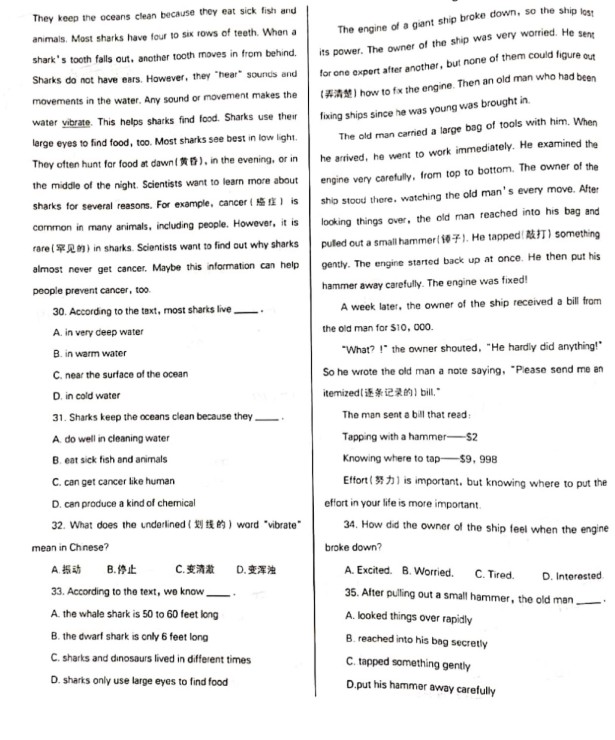
b. criticize the positive aspects of their own county
c. abandon their original beliefs
d. accept a temporary set of values
3. Which of the following statements is true according to the author?
a. Perplexity results in culture shock.
b. A typical symptom of cultur shock is confusion.
c. Culture shock is the explanation of anxiety.
d. Culture shock happens to foreign students only.
4. Newcomer may worry about ________.
a. their ignorance of the alien customs
b. their knowledge of "Yes" in the native language
c. their understanding of friendship
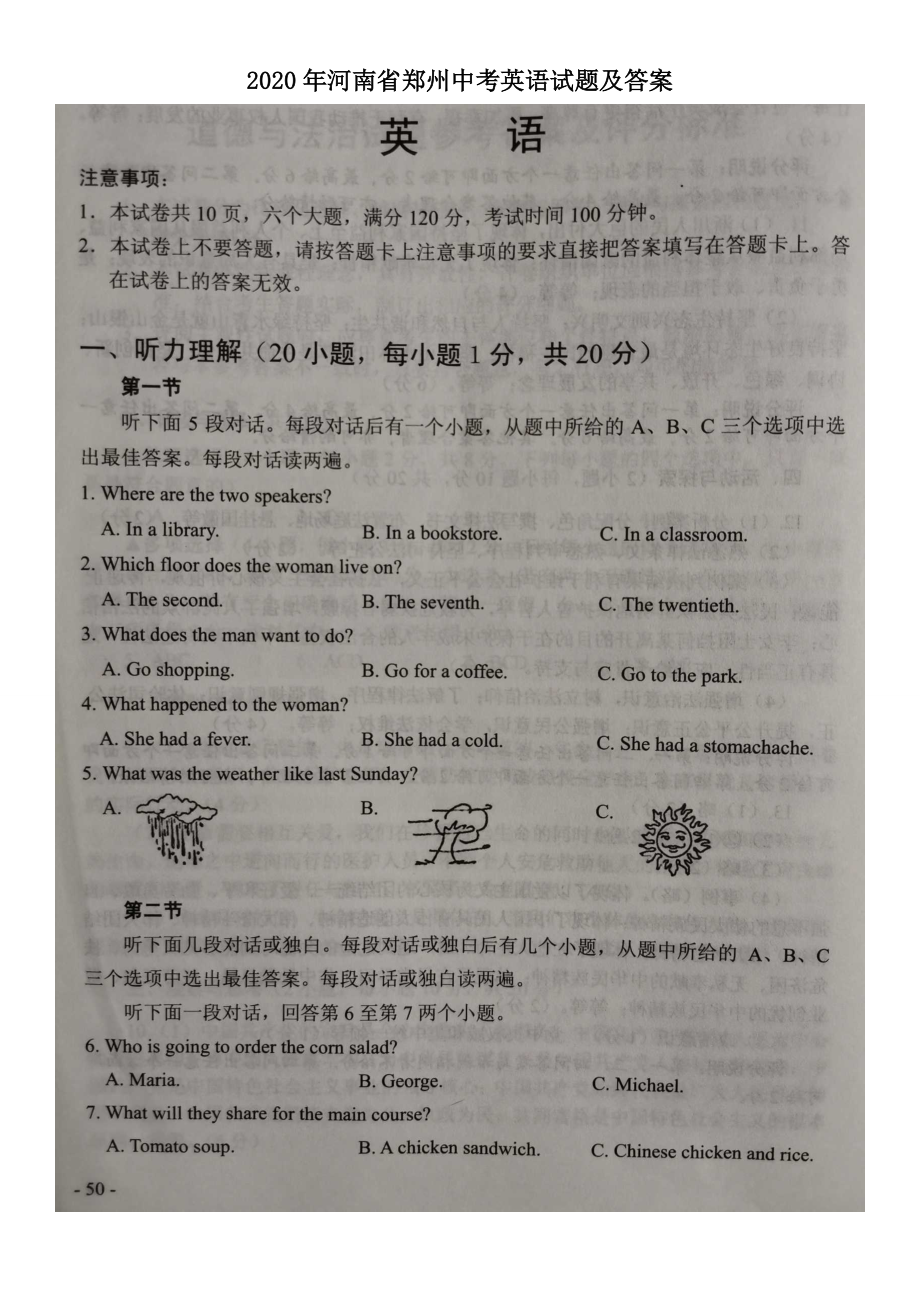
d. their control of their behavior
5. When the foreign visitor is immersed in new problems he finds hard to cope whith, he is most likely to feel ________.
a. uninsured
b. deprived
c. alienated
d. baffled
答案:cdadb
Text 2
The United States is a federal union of 50 states. The capital of national government is in Washington, D. C.(District of Columbia). The federal constitution sets up the structures of the national government and lists its powers and activities. The constitution gives Congress the authority to make laws which are necessary for the common defense and the good of the nation. It also gives the federal government the power to deal with national and international problems that involve more than one state. All powers that are not given to the federal government by the constitution are the responsibility of the individual states.
The federal government has three branches - the executive, the legislative, and the judicial. The legislative brandch makes the laws, executive branch carries out the laws, and judicial branch interprets the laws. The President heads the executive branch and the Supreme Court heads the judicial branch. The legislative branch includes both houses of Congress - the Senate and the House of Reprsentatives. The constitution limits the powers of each branch and prevents one branch from gaining too much power. For example, Congress can pass a Law the President may sign it. Nevertheless, the Supreme Court can declare the law unconstitutional and nullify it.
All government in the United States is "of the people, by the people and for the people". The people elect the President and the members of Congress. However, the President appoints the heads of federal departments and the Supreme Court judges. Every citizen votes in secret. Consequently, no one knows for whom and indevidual votes. The people believe that their government should provide a frameword and order within which they are left free to run their own lives.
1. Who makes the laws?
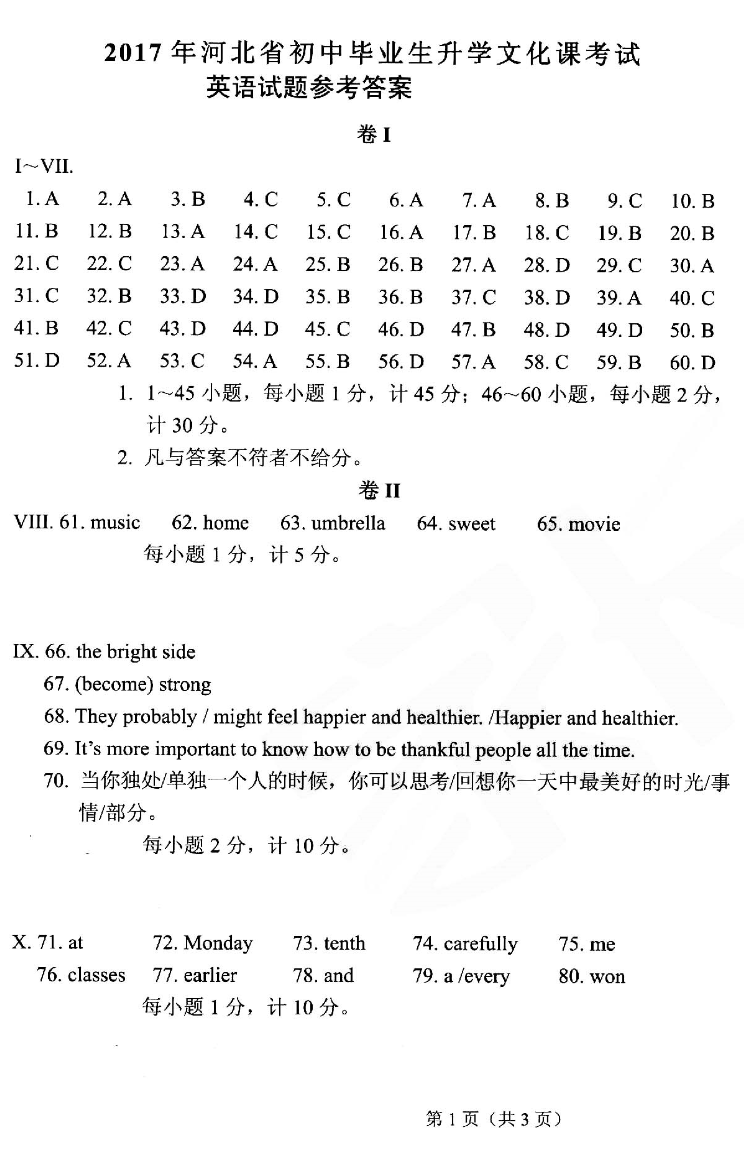
a. The Congress.
b. The Federal government.
c. The President.
d. The supreme Court.
2. The capital of the United States lies in ________.
a. the state of the COlumbia
b. none of the fifty states
c. the state of New York
d. the state of Washington
3. Based on what you can know from the passage, which of the following statements is true?
a. The heads of federal departments are elected by the people.
b. The President sets up the structures of the federal government.
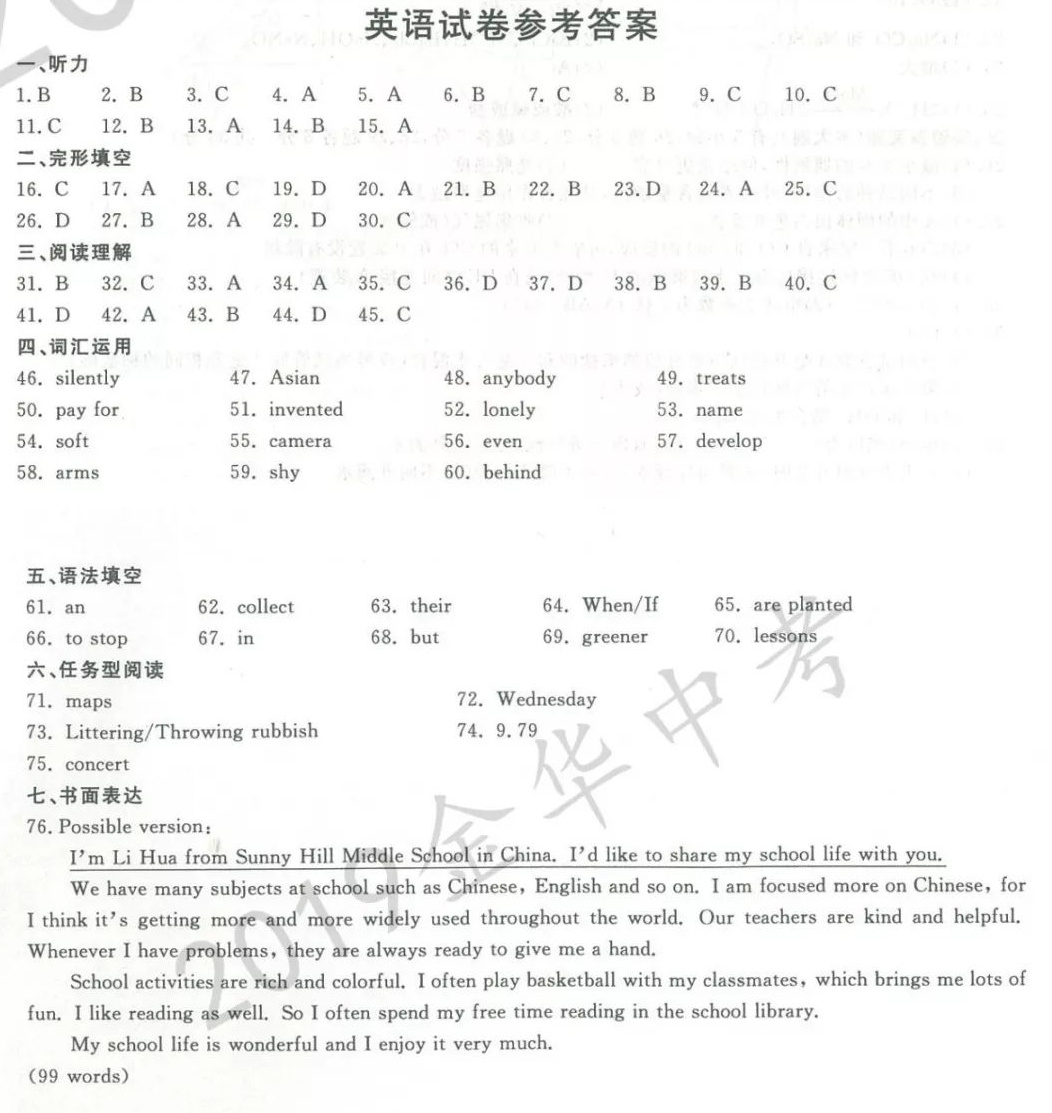
c. The judicial branch has the authority to explain the laws.
d. The constitution gives all powers to the federal government.
4. The constitution limits the powers of each branch of the federal government because ________.
a. the U. S. has fifty states
b. the individual states have their own governments
c. the federal government has three branches
d. any one branch should not have too much power
5. The main point of this passage is ________.
a. the three branches of the U. S. government
b. American government
c. the Federal Consititution
d. the people should be left free to run their own lives
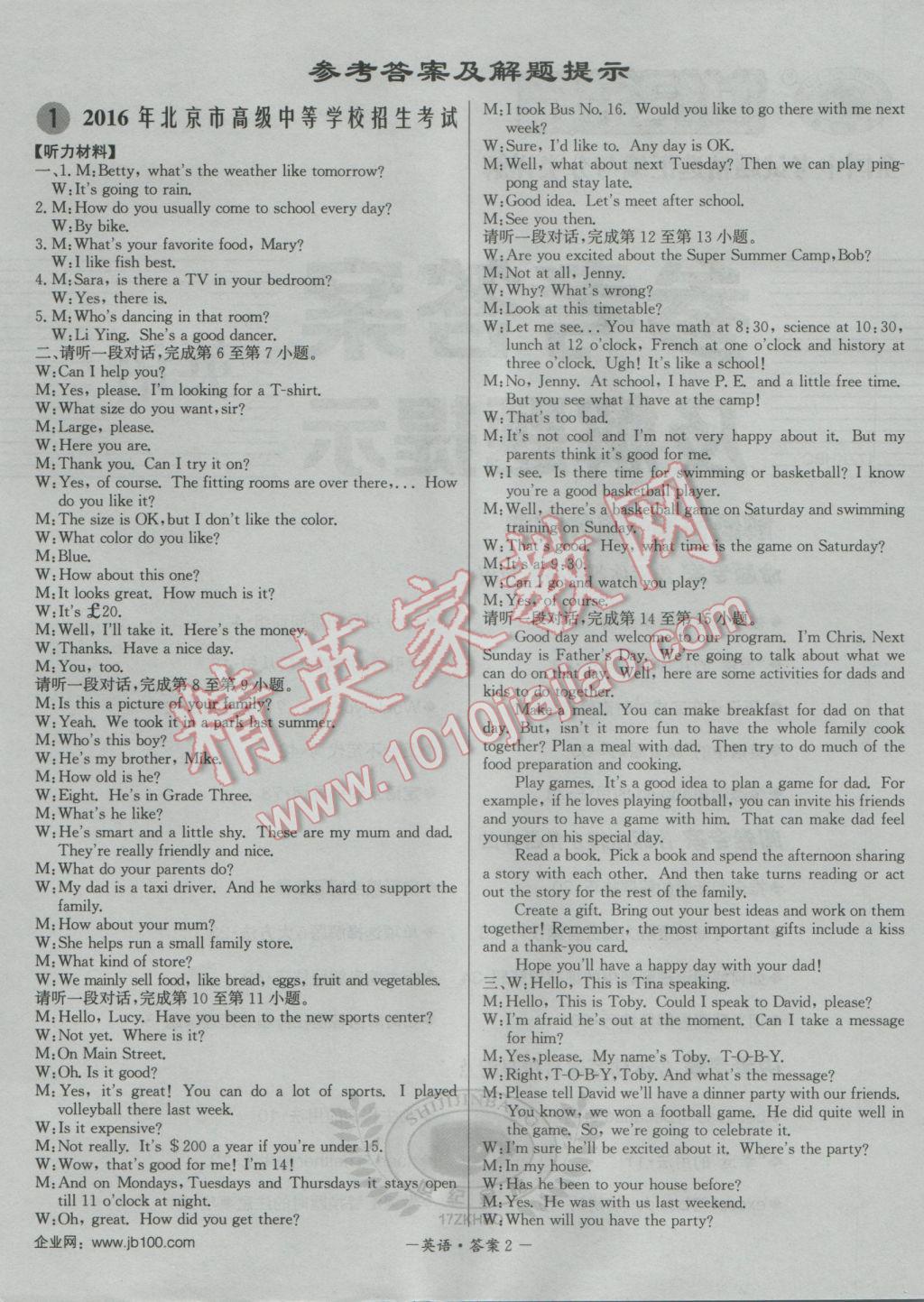
答案:abcdb
【2016年大学英语四级阅读理解练习试题及答案】相关文章:
大学英语四级阅读理解冲关试题及答案08-17
大学英语四级阅读理解考试题及答案201708-17
大学英语CET-4阅读理解试题及答案08-08
英语四级阅读理解考试题及答案04-02
2017四级英语阅读理解考试题及答案08-21
英语阅读理解综合练习及答案详解10-03
中考英语阅读理解专项练习及答案10-02
大学英语四级阅读理解集训巩固练习题及答案08-21
大学英语专业四级阅读理解模考试题及答案08-27
大学英语CET4阅读理解模拟试题及答案08-14
 名师辅导
环球网校
建工网校
会计网校
新东方
医学教育
中小学学历
名师辅导
环球网校
建工网校
会计网校
新东方
医学教育
中小学学历